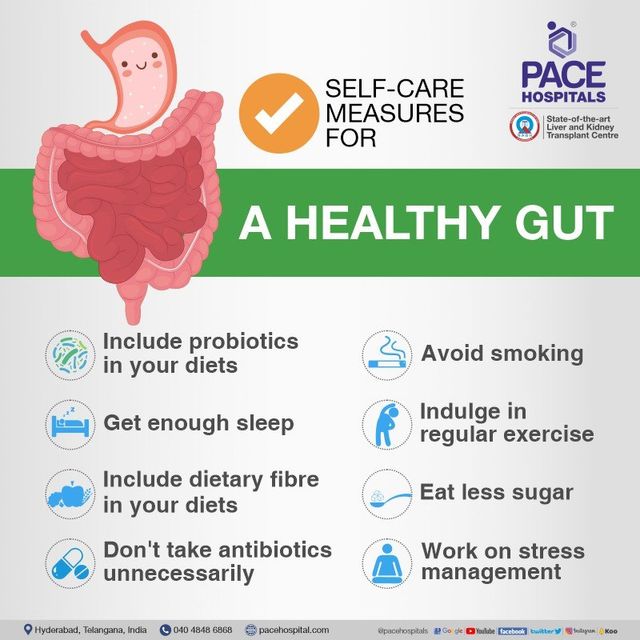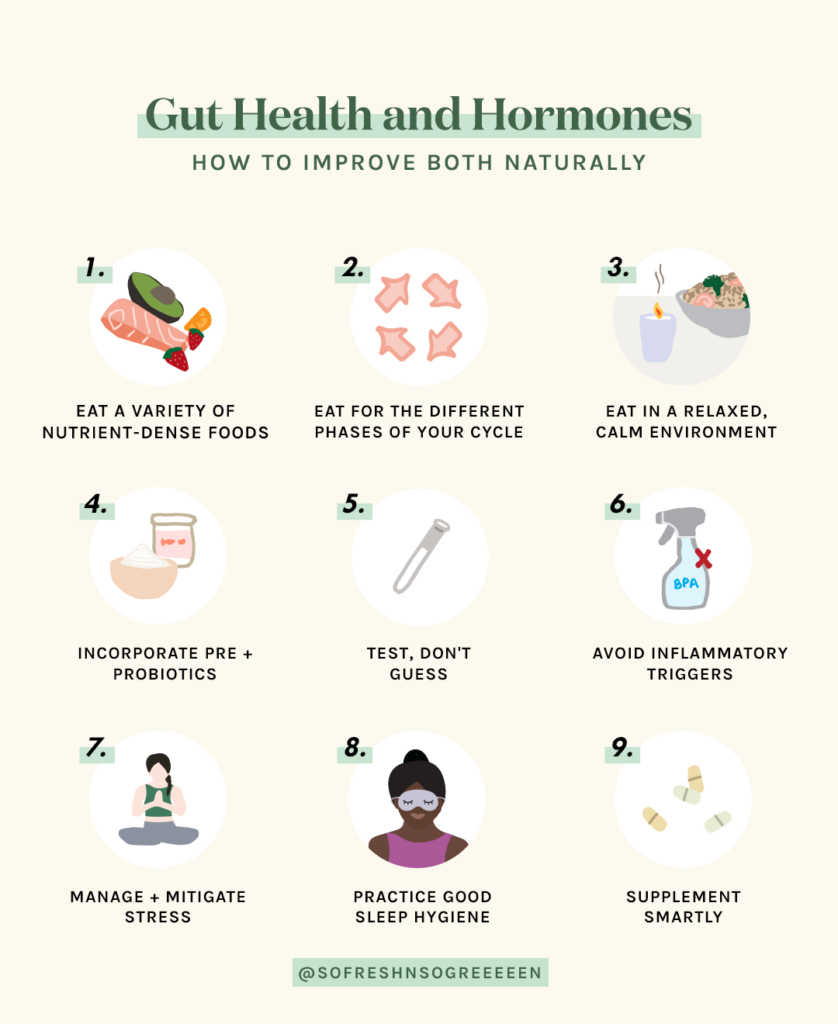
Maintaining a healthy gut is essential for overall well-being. From aiding digestion to supporting immune function, a balanced gut is important for optimal health. But how can you ensure that your gut stays healthy? In this article, we will explore simple yet effective ways for you to maintain a healthy gut, including the importance of eating a balanced diet and incorporating probiotics into your daily routine. By following these easy tips, you’ll be on your way to a healthier gut in no time.

This image is property of lirp.cdn-website.com.
Introduction
Having a healthy gut is crucial for your overall well-being. The gut, also known as the gastrointestinal tract, plays a significant role in digestion, nutrient absorption, and maintaining a robust immune system. Taking care of your gut can have a positive impact on your digestion, energy levels, and even your mental health. In this article, we will explore various ways you can maintain a healthy gut and enhance your overall health and well-being.
Understanding the Gut
What is the gut?
The gut refers to the entire digestive system, which starts with the mouth and ends with the rectum. It includes various organs, such as the stomach, small intestine, and large intestine, as well as the liver, gallbladder, and pancreas. These organs work together to break down the food we eat and extract essential nutrients for our body’s functions.
The importance of a healthy gut
A healthy gut is vital for optimal nutrient absorption, healthy digestion, and a strong immune system. It helps to break down food efficiently, enabling the body to extract essential vitamins, minerals, and other nutrients. A well-functioning gut also plays a crucial role in regulating metabolism, hormone production, and neurotransmitter synthesis. Additionally, approximately 70% of our immune system resides in the gut, making it essential for overall immune health.
Signs of an Unhealthy Gut
Digestive issues
Chronically experiencing digestive issues such as bloating, gas, constipation, diarrhea, or abdominal pain may indicate an unhealthy gut. These symptoms can be caused by imbalances in gut bacteria, inflammation, or poor digestion.
Food intolerances
Food intolerances and sensitivities can be a sign of an unhealthy gut. If you find yourself frequently reacting negatively to certain foods, experiencing symptoms like bloating, cramping, or diarrhea after consuming them, it may be an indicator that your gut is struggling to digest and tolerate those particular foods.
Weakened immune system
Frequent illnesses or infections can be a sign of a weakened immune system, which could relate to an unhealthy gut. Since a significant portion of the immune system is located in the gut, an imbalance in gut bacteria or chronic inflammation can impair immune function, making you more susceptible to infections and illnesses.
Diet and Nutrition
Fiber-rich foods
Incorporating fiber-rich foods into your diet is essential for maintaining a healthy gut. These include fruits, vegetables, whole grains, legumes, and nuts. Fiber adds bulk to your stool, promotes regular bowel movements, and helps nourish the beneficial gut bacteria. Aim for at least 25-30 grams of fiber per day to support gut health.
Probiotics and fermented foods
Probiotics are beneficial bacteria that can promote a healthy gut microbiome. You can find them in fermented foods like yogurt, sauerkraut, kimchi, and kefir. Consuming these foods regularly can help restore and maintain a healthy balance of gut bacteria. If you prefer a supplement form, look for high-quality probiotics containing a diverse range of strains.
Reducing processed and sugary foods
Processed and sugary foods can disrupt the balance of bacteria in your gut and promote inflammation. These foods often lack essential nutrients and fiber, while also contributing to weight gain and various health issues. Limiting your intake of processed foods, sugary beverages, and refined carbohydrates can significantly improve your gut health.

This image is property of www.netmeds.com.
Hydration
Importance of water for gut health
Staying hydrated is crucial for maintaining a healthy gut. Water helps to keep your digestive system functioning properly by aiding in the digestion and absorption of nutrients. It also helps prevent constipation and supports the natural detoxification processes in your gut. Aim to drink at least eight glasses of water per day, or more if you engage in physical activity or live in a hot climate.
Avoiding Certain Foods
Artificial additives and sweeteners
Artificial additives and sweeteners can negatively impact your gut health. These chemicals, commonly found in processed foods, can disrupt the balance of gut bacteria and cause inflammation. Avoid artificial additives, artificial sweeteners, and opt for natural, whole foods whenever possible.
Trans fats and fried foods
Trans fats and fried foods should be limited or avoided altogether for the sake of gut health. These unhealthy fats not only promote weight gain and heart disease but also contribute to inflammation in the gut. Opt for healthier cooking methods like baking, grilling, or steaming, and choose healthier fat sources such as olive oil or avocado.
Excessive alcohol consumption
Excessive alcohol consumption can harm the gut lining and disrupt the balance of gut bacteria. It can lead to inflammation, impair nutrient absorption, and increase the risk of digestive disorders. Moderation is key when it comes to alcohol consumption, and it’s advised to limit your intake to moderate levels or abstain altogether.

This image is property of images.ctfassets.net.
Stress Management
Impact of stress on gut health
Chronic stress can have a detrimental effect on your gut health. When you’re stressed, your body produces high levels of stress hormones, which can disrupt the balance of bacteria in your gut, impair digestion, and increase inflammation. It’s crucial to find effective stress management techniques to support your gut health.
Meditation and relaxation techniques
Practicing meditation, deep breathing exercises, or engaging in activities like yoga or Tai Chi can help manage stress effectively. These activities promote relaxation, reduce the production of stress hormones, and support a healthy gut. Consider incorporating them into your daily routine to reduce stress levels and improve gut health.
Exercise and Physical Activity
Benefits of exercise for gut health
Regular physical activity not only supports overall health but also plays a beneficial role in maintaining a healthy gut. Exercise helps stimulate the muscles of the digestive tract, promoting regular bowel movements and reducing the risk of constipation. It also enhances blood flow to the gut, supporting a healthy gut lining and overall digestive function.

This image is property of sofreshnsogreen.com.
Sleep Quality
How sleep affects gut health
Quality sleep is essential for maintaining a healthy gut. Poor sleep patterns and insufficient sleep have been linked to imbalances in gut bacteria, increased inflammation, and impaired gut function. Aim for 7-9 hours of quality sleep each night to support optimal gut health.
Tips for improving sleep quality
Establishing a consistent sleep schedule, creating a relaxing bedtime routine, and optimizing your sleep environment can help improve sleep quality. Avoid electronic devices before bed, keep your bedroom cool and dark, and practice relaxation techniques to promote a restful night’s sleep.
Seeking Professional Help
Consulting a healthcare professional
If you’re experiencing chronic digestive issues or suspect you have an unhealthy gut, it’s essential to consult a healthcare professional. They can evaluate your symptoms, review your medical history, and provide personalized recommendations to improve your gut health.
When to see a gastroenterologist
If your gut issues persist or worsen despite your efforts to maintain a healthy gut, it may be necessary to see a gastroenterologist. They specialize in diagnosing and treating conditions related to the gut, such as irritable bowel syndrome (IBS), inflammatory bowel disease (IBD), or celiac disease. They can conduct further tests, provide an accurate diagnosis, and develop a specialized treatment plan to address your specific needs.
By implementing these strategies, you can take proactive steps to maintain a healthy gut and optimize your overall health. Remember, a healthy gut is a happy gut, and your body will thank you for the care and attention you give it.

This image is property of elibrecher.co.uk.